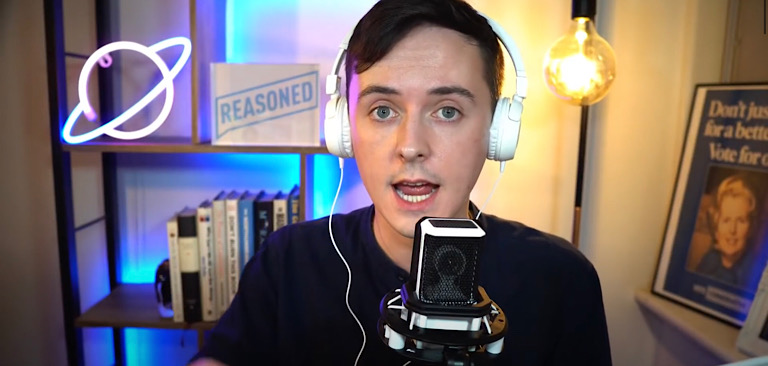After dropping its investigation into British political commentator Darren Grimes and admitting the response was not “proportionate,” the UK’s Metropolitan Police force (the Met) has now recorded the investigation as a “non-crime hate crime.”
The Met launched its investigation into Grimes last month after one of his podcast guests, historian David Starkey, said during an interview that slavery was not similar to genocide because there are “so many damn blacks.”
The investigation was slammed by many politicians, public figures, and free speech groups with Toby Young, the General Secretary of Free Speech Union, warning that threatening journalists with arrest if their interviewees say something that’s deemed to be offensive “will have a chilling effect on free speech, which is the lifeblood of democracy.”
A couple of weeks later, the Met dropped its investigation into Grimes and admitted “it is no longer proportionate” to continue.
Grimes subsequently launched a formal complaint against the Met and noted his concerns that “that senior officers in the Metropolitan Police Force appear to be making significant operational decisions on the basis of media commentary and social media posting.”
But now, despite the investigation being dropped, the Met has recorded it as a non-crime hate crime.
“WTAF. @metpoliceuk say they have, even after dropping their investigation into the vexatious claim that I stirred up racial hatred for interviewing somebody, recorded the incident as a non-crime hate crime,” Grimes tweeted. “Adding to the UK’s hate crime (thought crime) stats. Utterly insane.”
The UK police practice of logging non-crime hate incidents has proved controversial with online jokes and retweets often recorded as part of this process.
Harry “The Owl” Miller was infamously told, “I need to check your thinking,” by a UK police officer when one of his retweets was investigated as part of a non-crime hate incident last year.
Despite the UK police admitting that the subjects of these non-crime hate incidents have committed no crimes, the police still log them in multiple police computer systems and they can show up in employment background checks.
Grimes shared his concerns about how this non-crime hate incident could hinder his future employment prospects.
“This move by the police could preclude me from seeking employment as a teacher or a carer in the future, it will now show up on my criminal record if an employer carries out an enhanced DBS check,” he tweeted.
Grimes also called for the UK’s “supposedly Conservative Government” to “halt this chilling effect on freedom of expression by reminding British policing that they are not the Stasi, the Cheka or the Gestapo” and added that the Free Speech Union are “now on the case.”
“This is utterly ludicrous & a sinister moment for journalism: comments from interviewees can lead to criminal records for interviewers?” journalist Martin Daubney tweeted. “As a journalist of 25 years this isn’t a Britain I recognise. This is creeping totalitarianism. We must fight back & this must be struck off!”
Daubney also pointed to the sinister implications of non-hate crime incidents being logged:
“If people FEEL something is a hate crime, the cops are duty-bound to investigate. Then even if it isn’t a crime, it must be logged as a non-crime.”
This empowers people to fabricate offence to destroy careers. It’s dangerous!”
Over 120,000 non-crime hate incidents have been logged in the UK since 2014 and the UK also arrests over 3,000 people each year for “offensive” online posts.
Even though non-hate crime incidents are not considered crimes, the UK police admits it uses stats on these incidents for “intelligence purposes” and to “identify patterns of behavior.” Additionally, behavior that’s logged as part of a non-hate crime incident can be used as evidence of “motivated hostility” in “future hate crime” investigations.








